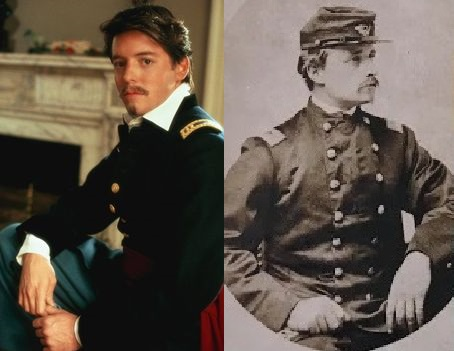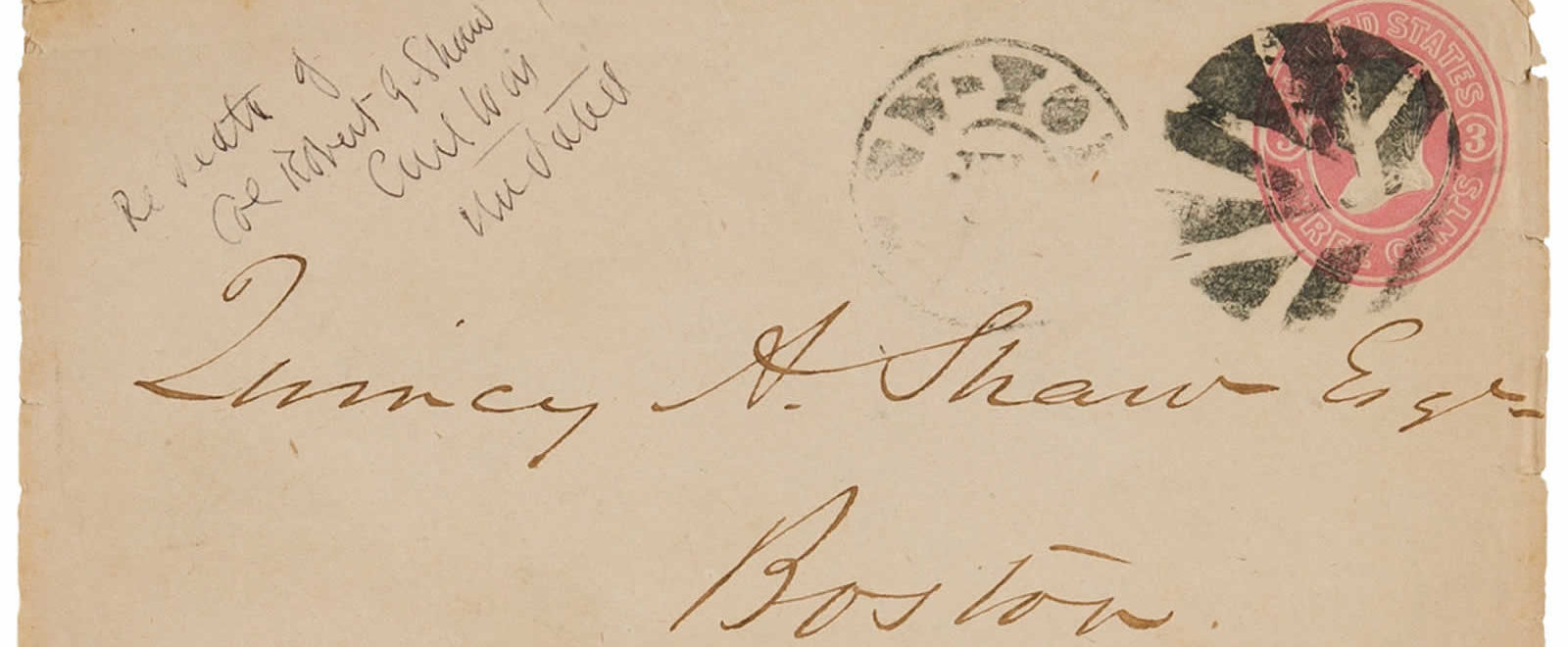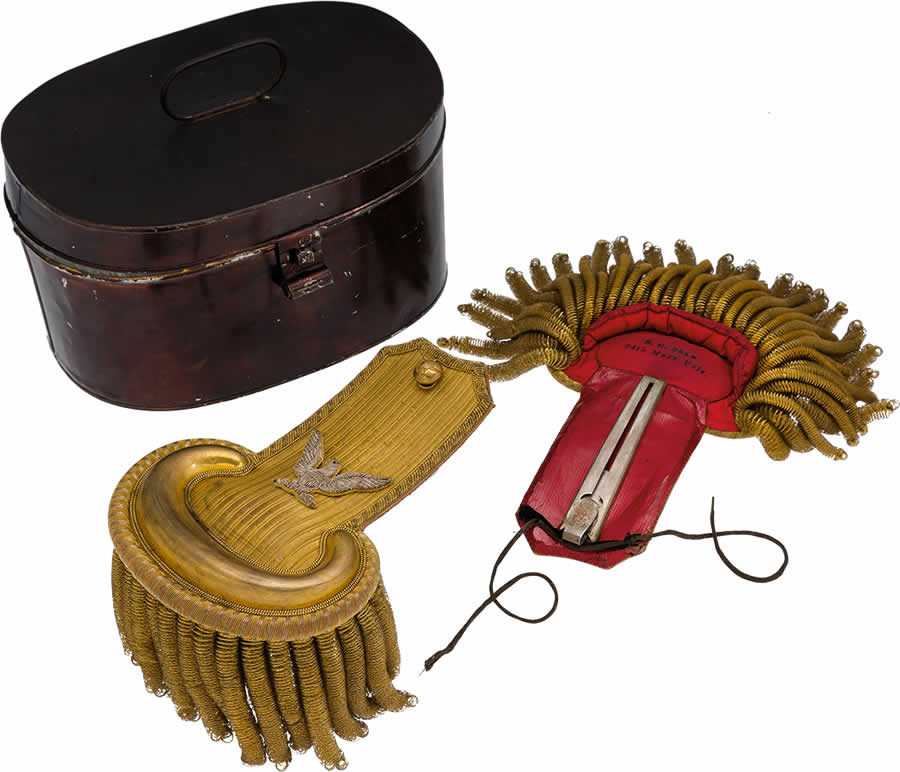EPAULETS, LETTER FROM ESTATE OF CIVIL WAR HERO PORTRAYED IN ‘GLORY’ MOVIE
The name Robert Gould Shaw has long been known to Civil War buffs and historians. But he became immortalized when portrayed by Matthew Broderick in the classic 1989 film Glory.
EVENT
CIVIL WAR, MILITARIA, ARMS & ARMOR GRAND FORMAT AUCTION 6188
June 10, 2018
Live: Dallas
Online: HA.com/6188a
INQUIRIES
Tom Slater
214.409.1441
TomS@HA.com
The movie told the story of the legendary all African-American regiment, the 54th Massachusetts, which, under the command of Shaw and other white officers, distinguished itself in the unsuccessful July 18, 1863, assault on the Confederate defenses at Fort Wagner in Charleston, S.C. Their discipline and bravery in the attack demonstrated the reliability of African-American combat troops.
The 54th Mass. suffered heavy casualties, among them Col. Shaw. In an intended insult, the Confederates buried Shaw, who as a ranking officer would normally have been treated with respect, in a mass grave along with his men. But that mean-spirited gesture would come to be symbolic of the honor Shaw richly deserved.
Enlarge

Shaw was born in 1839 to privileged, abolitionist parents in Boston. As a youth, he enjoyed a life of world travel and high culture, ultimately entering Harvard in 1856. Shaw was deeply moved by the 1852 publication of Uncle Tom’s Cabin by family friend Harriet Beecher Stowe. Commitment to the cause of abolition grew, and when the Civil War broke out, he was quick to join the Union cause, rising in rank until in 1862 he was persuaded to accept command of a new, all-black fighting regiment.
Shaw came to develop a deep affection and respect for his men, at one point joining them “on strike” until Congress revised the odious policy of paying black troops less than their white counterparts.
Heritage Auctions, on behalf of Col. Shaw’s descendants, is presenting two highly important relics: a poignant letter from Shaw’s father dealing with his death, and his custom-made dress epaulets. The letter was written shortly after Col. Shaw’s death to his uncle Quincy Adams Shaw.
The epaulets were part of Shaw’s custom-tailored dress uniform. During the Civil War, ranking officers, often well-to-do, were permitted much license in the design of their uniforms. The wealthiest even had often-elaborate shoulder epaulets, such as the set presented here. Of course, Col. Shaw’s everyday shoulder boards were buried with him at Fort Wagner, but this pair, with full family provenance, is an evocative artifact from one of the Civil War’s revered heroes.
‘To prove its equality’
LETTER FROM ROBERT GOULD SHAW’S FATHER TO A RELATIVE, WRITTEN SHORTLY AFTER THE COLONEL’S DEATH:
“My dear Quin
It was so — our dear Rob’s death was fitting — He was as if transfigured when on that day, when I took what I believed to be my last farewell of him — but he had one wish, as he told me: to fight his Regiment alongside of a white one, to prove its equality. That wish was fully gratified on James’ Island. The 54th not only proved its equality, but four companies of it saved the white Regiment, so one of the soldiers of the latter told Mr. Haggerty.
Rob’s last letters, hours before he died, (first on the parapet of Fort Wagner, ready to take the colors from the color-bearer, should the latter fall, so Willie James has just told me) are full of joy and happiness and gratified pride for his regiment – he had no selfish ambition – as we all know – and he died in what was to him the hour of triumph – can we lament, but for our loss. Dear Sarah bears up nobly and tries to comfort her aching, yearning heart by such thoughts, as we all do – but we must feel our loss poignantly sometimes.
Give our best love to Pauline, we hope that she may pass through her coming trial with the least possible suffering.
Affectionately,
Frank.
This story appears in the Spring/Summer 2018 edition of The Intelligent Collector magazine. Click here to subscribe to the print edition.



